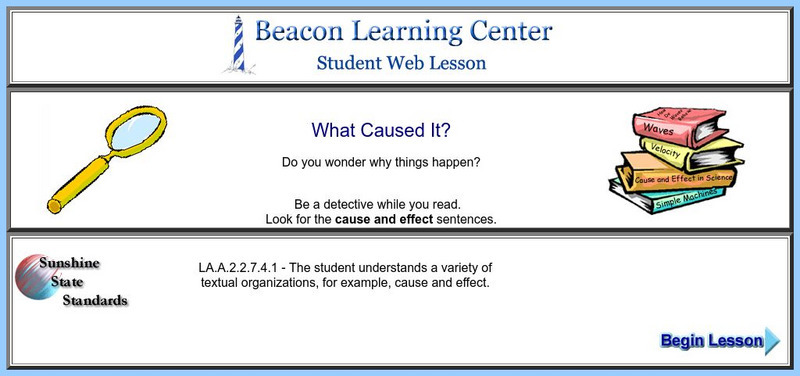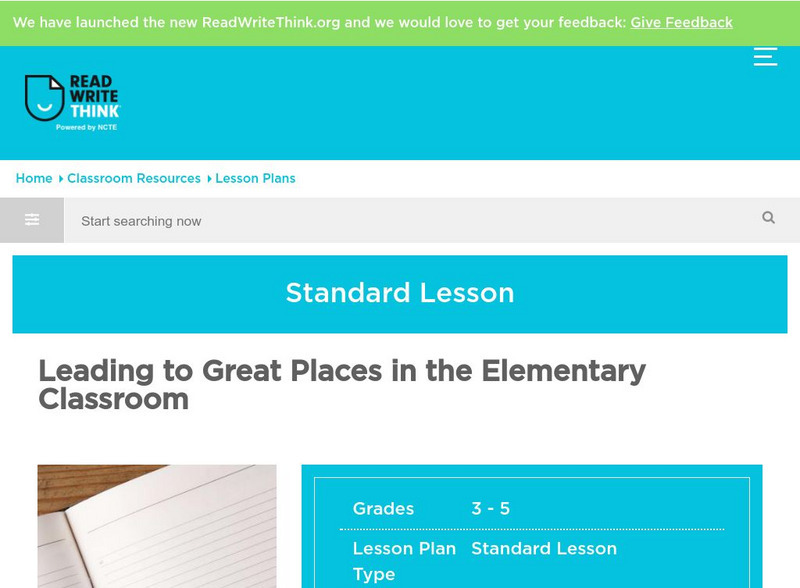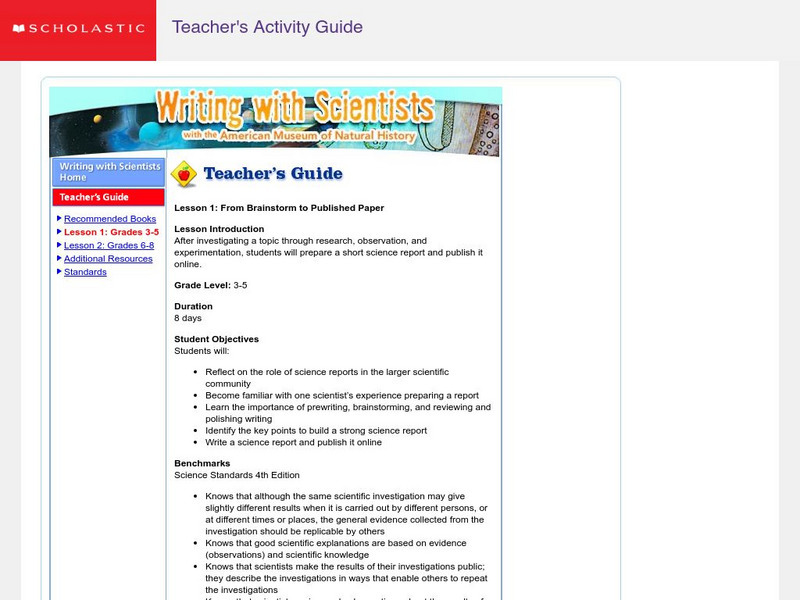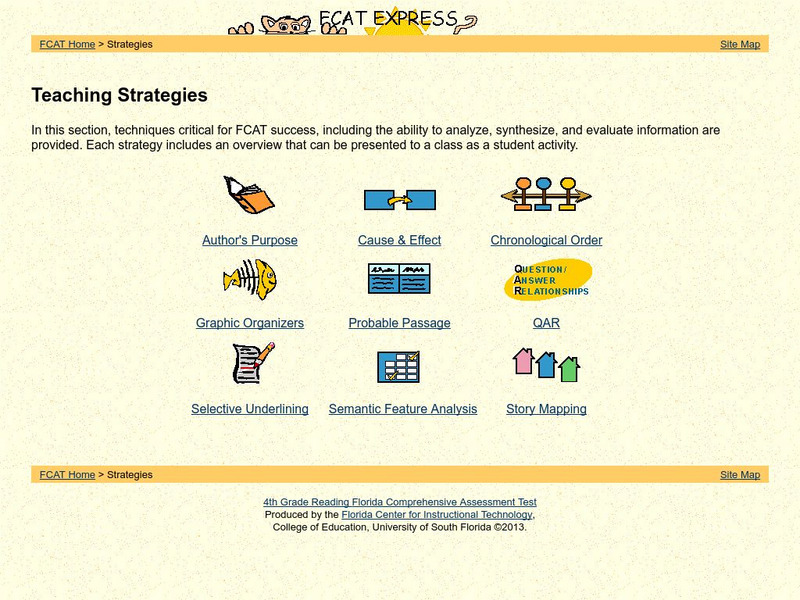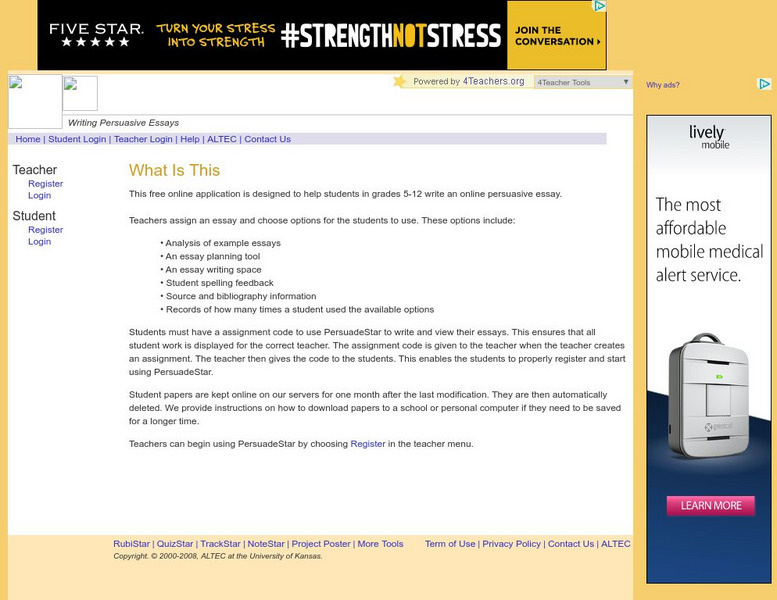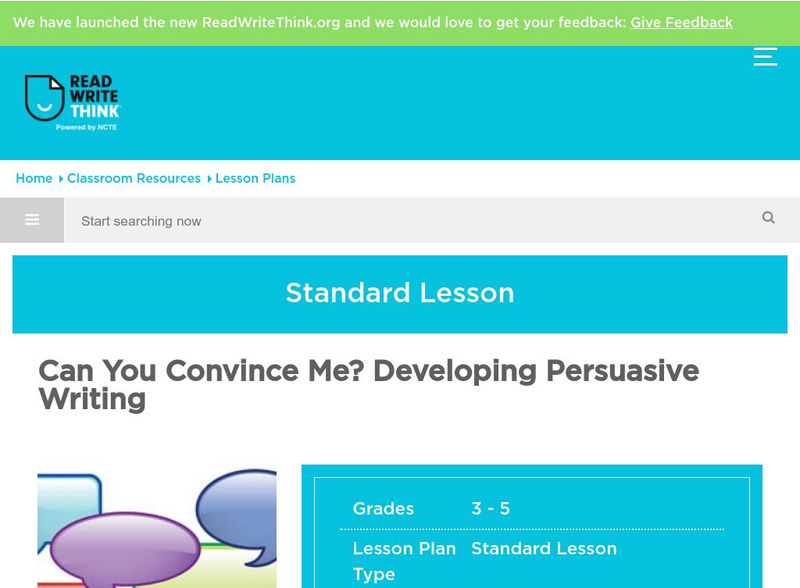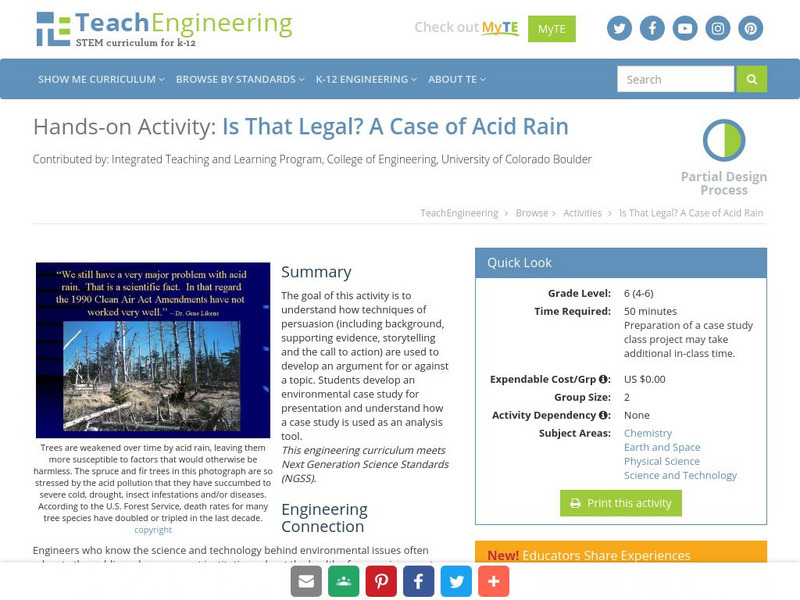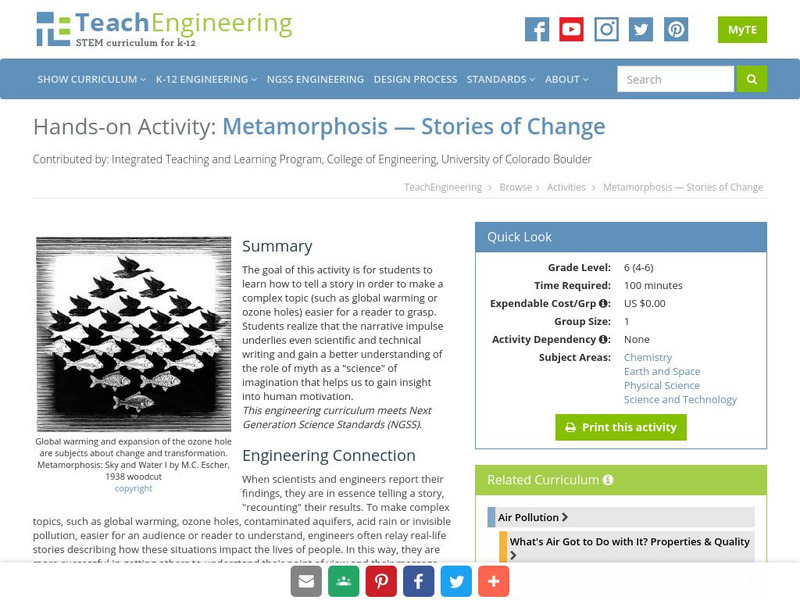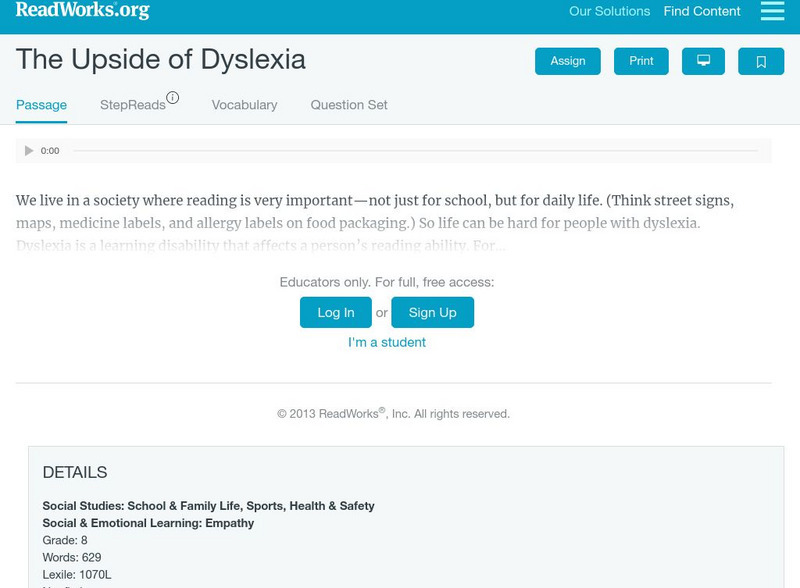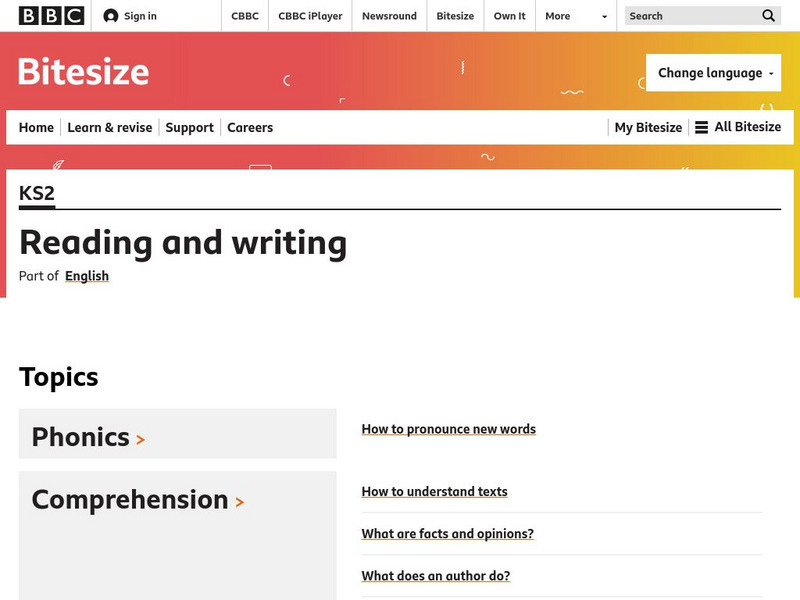Hi, what do you want to do?
Core Knowledge Foundation
Unit 3: King Arthur and the Round Table
Over four weeks, fourth graders study King Arthur and the Round Table, retold by Alice M. Hadfield. Fifteen lessons take pupils through each chapter, complete word work, and the writing process to draft paragraphs, sentences, dialogue,...
Core Knowledge Foundation
Unit 1: Memoir - Brown Girl Dreaming by Jacqueline Woodson
The memoir, Brown Girl Dreaming by Jacqueline Woodson, is the focus of a unit designed for fourth graders. Scholars begin each lesson with a warm-up, then listen to a read-aloud of a section of the book. Pupils complete word work,...
Learning to Give
Why Volunteer?
Inspire scholars to volunteer their time to make a positive change in their community. With help from research, a public speaker, and reflection, learners define and asses what it takes to be a volunteer in a business, non-profit,...
John F. Kennedy Center
Writing a Myth
Tap into the imaginative minds of young learners with a creative writing activity. After reading the myth Giants and Mosquitoes, this student guide supports young writers as they brainstorm and develop their very own creation myths....
Curated OER
Think of an Ending
Good endings are hard to find. And write. This, the final lesson in a six-part series devoted to study of the ingredients of a good story, focuses on crafting endings. Class members draft ideas about what should happen to each of their...
University of South Florida
Fcat Express: Teaching Strategies (Reading) [Pdf]
Printable, fifty-five page PDF file of a staff development manual containing strategies for teaching reading. Includes chapters on vocabulary, main ideas and supporting details, author's purpose, chronological order, plot and conflict...
Beacon Learning Center
Beacon Learning Center: What Caused It?: Student Web Lesson
Students are asked to be detectives while they read and to look for the cause/effect sentences in the paragraphs. In this lesson, students read paragraphs and answer questions about it by either typing in their responses or selecting...
Other
Into the Book: Inferring: Using the Clues
Watch an introductory tutorial about inferring during reading, and then choose from several different types of texts to practice using the skill.
ReadWriteThink
Read Write Think: Leading to Great Places in the Classroom
We all know that the most effective way to teach reading is to start with reading. This lesson uses that approach with writing story leads.
Scholastic
Scholastic: Writing With Scientists
After students investigate a topic through research, hypothesizing, observing, and experimentating, teachers can use this lesson to help their students prepare short science reports and publish them online. The Writing with Scientists...
Education Place
Houghton Mifflin: Eduplace: Wacky Web Tales: The Weather Station
This fill-in-the-blank Wacky Web Tale includes a story about a weather station. It is fun and serves an interactive grammar review. Wacky Web Tales are fun and interactive grammar reviews. Students fill in blanks for different parts of...
University of South Florida
Fcat Reading Grade 4: Teaching Strategies
This is a great resource that concentrates strategies and student activities in one place in an easy to use format, and can be navigated easily. Find great examples of probable passage, selective underlining, and semantic feature...
University of South Florida
Fcat Express: Cause and Effect
Site provides extensive assistance in preparing 4th grade students for Florida Comprehensive Assessment Test. This section helps students identify cause and effect in literature.
Other
4 Teachers: Persuade Star: Writing Persuasive Essays
This free online application is designed to help students in grades 5-12 write an online persuasive essay.
ReadWriteThink
Read Write Think: Can You Convince Me? Developing Persuasive Writing
Contains plans for four 40-minute lessons that teach persuasive writing to elementary students. In addition to student objectives and standards, these instructional plans contain links to PDF handouts and links to sites used in the...
TeachEngineering
Teach Engineering: Is That Legal? A Case of Acid Rain
The goal of this activity is to understand how techniques of persuasion (including background, supporting evidence, storytelling and the call to action) are used to develop an argument for or against a topic. Students develop an...
TeachEngineering
Teach Engineering: Metamorphosis Stories of Change
The goal of this activity is for students to learn how to tell a story in order to make a complex topic (such as global warming or ozone holes) easier for a reader to grasp. Students realize that the narrative impulse underlies even...
TeachEngineering
Teach Engineering: Pingus Penguins: Writing Good Instructions
Students use the free computer game Pingus to learn how engineers, specifically environmental engineers, use their technical writing skills to give instructions and follow the instructions of others. Students learn to write instructions...
Read Works
Read Works: Passages: The Upside of Dyslexia
[Free Registration/Login Required] Students read a nonfiction text about dyslexia and the difficulties and successes it brings and answer questions about comprehension, supporting details, vocabulary, transitions, and more. The text is...
Beacon Learning Center
Beacon Learning Center: Trailblazing Conclusions
This tutorial focuses on conclusions for expository writing. It discusses the purpose of conclusions, what should be included, and ways to conclude.
BBC
Bbc: Ks2 Bitesize English: Reading
This site provides activities, games, tests, and worksheets in reading areas: deduction, dictionaries, poetry, and non-fiction.
Capital Community College Foundation
Guide to Grammar and Writing: Quiz on Sentence Types
This 10 question quiz asks students to read sentences and label them as to type by selecting from options given. There are review links given to study before taking the quiz if desired; it is scored and feedback is provided when...
Read Works
Read Works: Lesson 2: First and Last Sentences (Passage)
[Free Registration/Login Required] Students comprehension will be reinforced as they reading first and last sentences of paragraphs. Direct teaching, guided practice, and independent worksheets are available for this third grade lesson.
Better Lesson
Better Lesson: Bats, Friend or Foe. An Argument Writing Activity
Students will state an argument with evidence, for or against, bats being removed from their environment by writing a letter to the editor and citing evidence for your claim.










![Fcat Express: Teaching Strategies (Reading) [Pdf] Study Guide Fcat Express: Teaching Strategies (Reading) [Pdf] Study Guide](https://static.lp.lexp.cloud/images/attachment_defaults/resource/large/FPO-knovation.png)
